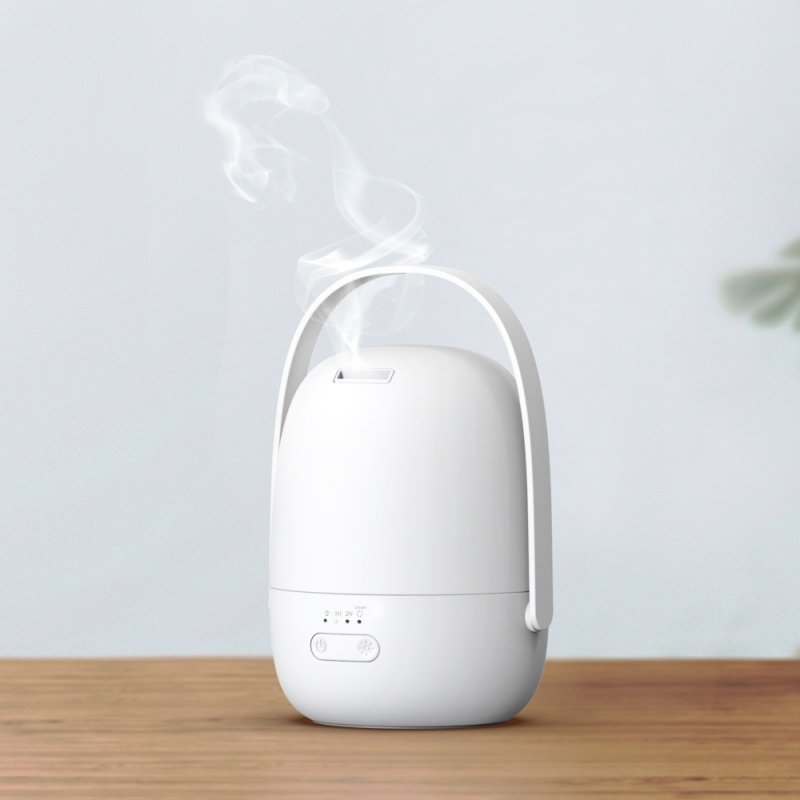The link between rosemary and memory
Rosemary has been known as a "memory herb" since ancient times. Scholars would often wear rosemary wreaths while studying for exams. This reputation has persisted over the centuries, with rosemary used in traditional medicine to treat various cognitive issues. Research shows that essential rosemary oil can help with cognitive performance and memory in older adults, especially perimenopausal women.
Which type of Rosemary essential oil to choose
A chemotype is a variation of a plant species with a unique chemical composition. Different chemotypes of the same plant species can have various therapeutic properties. Considering the chemotype when choosing essential oils for specific therapeutic purposes is crucial.
Choosing a high-quality rosemary essential oil from a reputable source is vital to ensure its chemical composition and potential benefits.
The most common chemotypes of rosemary essential oil include
-
1,8-cineole (also known as eucalyptol) chemotype: This is the most common chemotype of rosemary essential oil and is high in the chemical compound 1,8-cineole. This chemotype is known for its respiratory and cognitive benefits, and it is often used to support respiratory health and improve cognitive performance..
-
Camphor chemotype: This chemotype is high in the chemical compound camphor and is known for its analgesic and anti-inflammatory properties. It is often used topically to relieve muscle and joint pain.
-
Verbenone chemotype: This is high in the compound verbenone and is known for its skin-regenerating properties. It is often used topically to support healthy skin and reduce the appearance of scars and stretch marks.
-
Borneol chemotype: This chemotype is high in the chemical compound borneol and is known for its anti-inflammatory and analgesic properties. It is often used topically to relieve pain and inflammation.
-
Alpha-pinene chemotype: This chemotype is high in the chemical compound alpha-pinene and is known for its antiseptic and anti-inflammatory properties. It is often used topically to support healthy skin and promote wound healing.
What is perimenopause, and why does it affect memory issues in women
Perimenopause is the transitional phase that occurs before menopause in women, usually starting in their late 30s or early 40s, although it can begin earlier or later. Perimenopause ends when a woman has gone 12 consecutive months without a menstrual period, at which point she has reached menopause.
Estrogen receptors are located throughout the brain, including areas important for memory and cognition. Estrogen helps to regulate the production of neurotransmitters and promotes the growth and survival of brain cells. When estrogen levels fluctuate and decrease during perimenopause, this can lead to changes in the brain's chemistry and structure, affecting memory and cognitive function.
Additionally, perimenopausal women may experience sleep disturbances, anxiety, and mood changes, affecting cognitive function and memory. These symptoms can be related to hormonal changes during perimenopause and can further contribute to cognitive decline.
Rosemary Essential oil for cognitive performance and memory
The potential cognitive-enhancing properties of rosemary essential oil may help to alleviate some of the symptoms experienced during perimenopause.
In recent years, scientific research has confirmed that essential rosemary oil may help improve cognitive and memory functions, particularly in women aged 35 and above. The chemical component in rosemary essential oil considered beneficial is 1,8-cineole, also known as eucalyptol. It is a monoterpenoid oxide that improves cognitive performance, including memory, attention, and concentration.
In a study participants completed cognitive tests before and after inhaling the oil, and the results showed a significant improvement in their performance.
Another study found that inhaling rosemary essential oil improved cognitive performance in young adults. The study participants were given cognitive tests before and after inhaling the oil, and the results showed a significant improvement in their cognitive performance.
Prospective memory is remembering to do something in the future, like taking medicine or attending an appointment. Some studies suggest that inhaling rosemary essential oil may improve prospective memory.
How does rosemary help memory?
Our brain needs a nutrient called choline to function well. One important chemical made from choline is called acetylcholine. This chemical helps with attention, learning, and memory. Rosemary essential oil has a chemical called 1,8-cineole that might help increase the amount of acetylcholine in the brain, improving memory and cognitive function. Rosemary oil might also improve our mood and reduce stress, which could help with cognitive function as well
How to use rosemary essential oil
There are several ways you can do this through simple inhalation
Diffusion
Use a diffuser to scent the room with rosemary, ideally one that puffs out intermittently and does not continuously emit an aroma.
Personal Inhalers
Use a personal inhaler and apply the rosemary oil to the cotton wick inside when needed.
Aroma Patch
Apply an aroma patch for use throughout the day for a continuous passive, gentle diffusion of rosemary
Direct Inhalation
Apply a couple of drops of rosemary essential oil to a cotton ball or tissue and inhale directly from that, taking care not to make contact with the skin to avoid irritation.
If you use an inhalation technique like a personal inhaler or a cotton ball, the advice is to sniff mindfully for at least a few minutes throughout the day. This was shown to give the best results in research and has helped with issues related to brain fog, memory retention and cognitive function. The more you do this, and it becomes routine, the better results you will see in the long term.
Safety Considerations
While rosemary essential oil is generally considered safe, it should be used cautiously, especially for those with allergies, asthma or sensitivities to the plant.
Pregnant and nursing women should also avoid using rosemary essential oil.
With its lovely and refreshing aroma consider using rosemary essential oil if you're looking to improve your cognitive and memory functions, particularly if you're a woman aged 35 and above. Remember to use it cautiously and always follow the instructions of a professional aromatherapist.
What to find out more or discuss further?
Get in touch with me by email or direct message through Instagram or other social media platforms.
References:
Hussain, S M et al. “Cognition enhancing effect of rosemary (Rosmarinus officinalis L.) in lab animal studies: a systematic review and meta-analysis.” Brazilian journal of medical and biological research = Revista brasileira de pesquisas medicas e biologicas vol. 55 e11593. 9 Feb. 2022, doi:10.1590/1414-431X2021e11593
Plasma 1,8-cineole correlates with cognitive performance following exposure to rosemary essential oil aroma Mark Moss and Lorraine Oliver,Therapeutic Advances in Psychopharmacology20122:3,103-113













